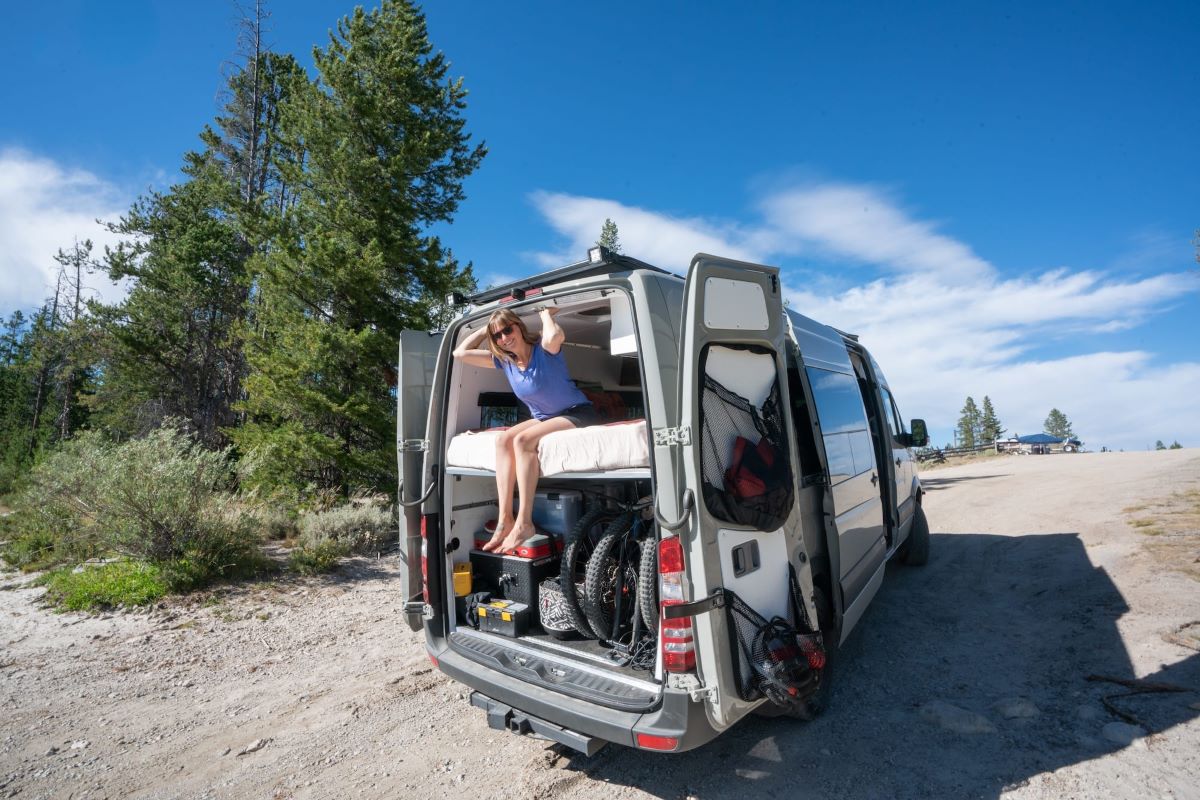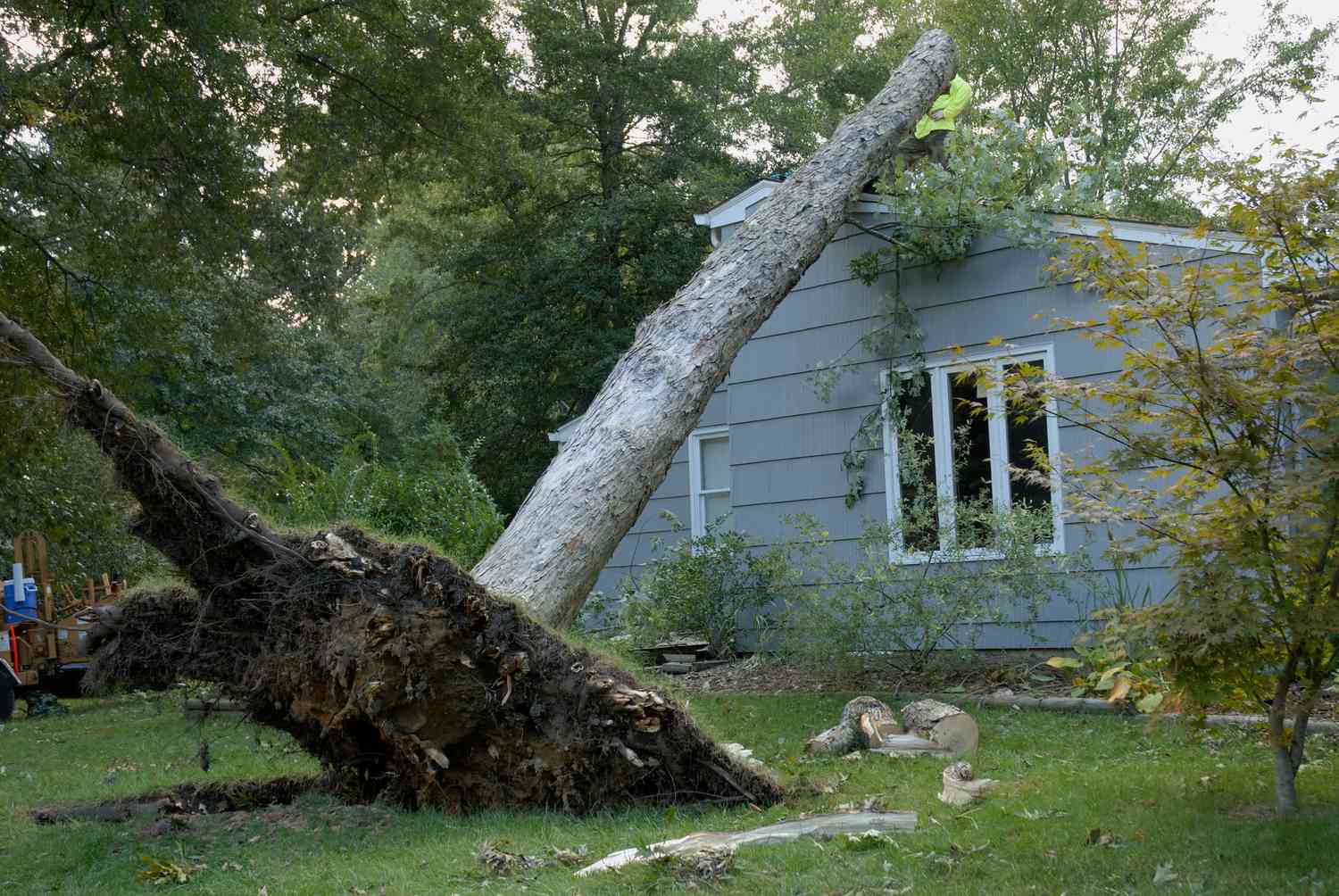

Finance
What Does U-Haul Insurance Cover?
Published: November 14, 2023
Find out what U-Haul insurance covers and how it can protect your finances during a move.
(Many of the links in this article redirect to a specific reviewed product. Your purchase of these products through affiliate links helps to generate commission for LiveWell, at no extra cost. Learn more)
Table of Contents
Introduction
Welcome to the world of U-Haul moving and storage services! When it comes to the logistics of moving your belongings from one place to another, U-Haul is a name that often comes to mind. However, one important aspect to consider when renting a U-Haul truck or trailer is insurance coverage. Accidents can happen, and having the right insurance can provide you with peace of mind during your move.
In this article, we will explore the various types of insurance coverage offered by U-Haul, detailing what each coverage includes and what it does not cover. Understanding U-Haul’s insurance options will enable you to make an informed decision about the level of coverage that best suits your needs and budget.
Whether you are using a U-Haul vehicle for a local move, a long-distance relocation, or for any other purpose, having insurance coverage is crucial. U-Haul offers several insurance options, including liability coverage, physical damage coverage, and cargo coverage. Additionally, there are additional coverage options and certain requirements and limitations when it comes to renting a U-Haul vehicle.
So, let’s dive into the world of U-Haul insurance and discover what protection it can offer you during your move.
Understanding U-Haul Insurance
Before we delve into the different types of U-Haul insurance coverage available, it’s important to understand the basic concept of U-Haul insurance and how it works. U-Haul insurance is designed to protect you financially in the event of an accident, damage, or theft that may occur while operating a U-Haul vehicle.
When you rent a U-Haul truck or trailer, there are different levels of insurance coverage you can choose from to ensure you have the appropriate protection for your specific needs. It is important to note that U-Haul insurance is not mandatory, but highly recommended to safeguard your belongings and provide liability coverage in case of any unforeseen incidents.
U-Haul offers three primary types of insurance coverage: liability coverage, physical damage coverage, and cargo coverage. These coverages work together to provide comprehensive protection during your move.
Liability coverage protects you against claims for bodily injury or property damage that may arise from an accident involving the U-Haul vehicle. This coverage is essential as it offers financial protection in case of any third-party injuries or property damage caused by your U-Haul rental.
Physical damage coverage, on the other hand, provides insurance for damage to the U-Haul vehicle itself. This coverage includes collision damage and comprehensive damage caused by accidents, theft, fire, vandalism, and other covered perils. Physical damage coverage ensures that you are not held financially responsible for any repairs or replacement costs in the event of damage to the U-Haul vehicle.
Cargo coverage is another important aspect of U-Haul insurance, particularly if you are transporting valuable or delicate items. This coverage protects the contents of the U-Haul truck or trailer, offering financial compensation if your belongings are damaged or stolen during the rental period.
Now that we have a general understanding of U-Haul insurance, let’s dig deeper into each type of coverage to understand what they include and exclude.
Liability Coverage
Liability coverage is an essential component of U-Haul insurance, providing financial protection in case of accidents or damage that may occur while operating a U-Haul vehicle. This coverage protects you against claims for bodily injury or property damage caused by your U-Haul rental.
When you rent a U-Haul truck or trailer, liability coverage is automatically included in the rental fee. This coverage typically has limits, which vary depending on the type of U-Haul rental and the state regulations. It is important to review and understand the specific liability limits applicable to your rental before hitting the road.
Liability coverage typically includes:
- Protection against bodily injury claims: If someone sustains an injury as a result of an accident involving your U-Haul rental, liability coverage can help cover their medical expenses, rehabilitation costs, and any potential legal expenses.
- Protection against property damage claims: If your U-Haul vehicle causes damage to someone else’s property, such as a vehicle or a building, liability coverage can help cover the repair or replacement costs.
However, it is important to note that liability coverage does not provide protection for your own property or belongings. It only extends to third-party injuries and property damage. If you want coverage for damage or loss to the U-Haul vehicle itself or the contents being transported, you will need to consider additional coverage options such as physical damage coverage or cargo coverage.
Additionally, liability coverage may have certain exclusions and limitations. It is crucial to carefully review the terms and conditions of the coverage, including any deductible amounts or specific restrictions that may apply. Understanding these details will help you make an informed decision regarding the level of liability coverage you need.
In summary, liability coverage is an important aspect of U-Haul insurance, providing financial protection in case of accidents or damage caused by your rental. It offers coverage for bodily injury and property damage to third parties, but it does not cover damage or loss to the U-Haul vehicle itself or the contents being transported. Considering the potential risks involved in operating a U-Haul vehicle, having adequate liability coverage is highly recommended.
Physical Damage Coverage
Physical damage coverage is an essential component of U-Haul insurance, providing protection for damage to the U-Haul vehicle itself. This coverage includes both collision damage and comprehensive damage caused by accidents, theft, fire, vandalism, and other covered perils.
When you rent a U-Haul truck or trailer, physical damage coverage is an optional add-on that you can choose to purchase. It is important to consider the value and condition of the U-Haul vehicle you are renting and assess the potential risks involved to determine if this coverage is necessary for your specific situation.
Physical damage coverage typically includes:
- Collision damage protection: This coverage helps repair or replace the U-Haul vehicle in case of a collision with another vehicle or object, regardless of fault. It typically includes the cost of repairs, parts replacement, or, in severe cases, the market value of the vehicle if it is deemed a total loss.
- Comprehensive damage protection: This coverage offers financial protection for damage caused by non-collision incidents, such as theft, fire, vandalism, severe weather events, and other covered perils. It covers the cost of repairs or replacement of the U-Haul vehicle.
Having physical damage coverage can provide peace of mind during your move, as it ensures that you are not held financially responsible for any repairs or replacement costs in case of damage to the U-Haul vehicle. It can save you from incurring significant expenses that may arise from accidents or unforeseen incidents during your rental period.
However, it is important to note that physical damage coverage often comes with a deductible. This means that in the event of a claim, you will be responsible for paying a predetermined amount of the repair or replacement costs, and the insurance will cover the remaining balance. The deductible amount may vary depending on the coverage and the state regulations.
Additionally, physical damage coverage may have certain exclusions and limitations. It is crucial to carefully review the terms and conditions of the coverage to understand any specific restrictions or requirements. For example, the coverage may exclude damage caused by driver negligence or driving under the influence. Understanding these details will help you make an informed decision regarding the level of physical damage coverage you need.
In summary, physical damage coverage is an important aspect of U-Haul insurance, offering protection for collision and comprehensive damage to the U-Haul vehicle. It can save you from incurring significant expenses in case of accidents, theft, fire, vandalism, or other covered perils. Carefully considering the value and condition of the U-Haul vehicle and assessing the potential risks will help you determine if purchasing physical damage coverage is necessary for your rental.
Cargo Coverage
Cargo coverage is a crucial component of U-Haul insurance that provides protection for the contents of the U-Haul truck or trailer being transported during your rental period. This coverage is especially important if you are moving valuable or delicate items and want financial compensation in the event of damage or theft.
When you rent a U-Haul vehicle, cargo coverage is an optional add-on that you can choose to purchase. It is important to assess the value and nature of the items you are transporting and evaluate the potential risks involved to determine if this coverage is necessary for your specific situation.
Cargo coverage typically includes:
- Protection against damage: This coverage provides compensation for the repair or replacement costs of your belongings in case they are damaged during the rental period. This can include damage from accidents, shifting during transportation, or any other covered perils.
- Protection against theft: Cargo coverage offers financial protection if your belongings are stolen during the rental period. It can compensate you for the value of the stolen items, allowing you to replace them.
Having cargo coverage can give you peace of mind knowing that your belongings are protected during the move. It provides a safety net in case of unexpected incidents that may result in damage or theft. Whether you are moving furniture, electronics, or other valuable items, cargo coverage can help alleviate the financial burden if something goes wrong.
It is important to note that cargo coverage may have certain limitations and restrictions. It is crucial to carefully review the terms and conditions of the coverage, including any exclusions or specific requirements. For example, coverage may be limited to certain types of items or may exclude damage caused by improper packing or handling.
Additionally, it is worth noting that cargo coverage does not extend to coverage for the U-Haul vehicle itself. If you want coverage for damage to the vehicle, you will need to consider physical damage coverage in addition to cargo coverage.
In summary, cargo coverage is a vital component of U-Haul insurance, offering protection for the contents of the U-Haul truck or trailer being transported. It provides coverage for damage to your belongings during the rental period and can compensate you in case of theft. Carefully evaluating the value and nature of your items and understanding the terms and limitations of the coverage will help you determine if purchasing cargo coverage is necessary for your rental.
Additional Coverage Options
In addition to liability, physical damage, and cargo coverage, U-Haul offers additional coverage options to further protect you and your belongings during your move. These additional coverage options can be beneficial in certain situations and provide added peace of mind.
One of the additional coverage options offered by U-Haul is supplemental liability insurance (SLI). SLI provides additional liability coverage beyond the standard liability offered with your rental. It increases the coverage limits and provides an extra layer of protection in case of a major accident or injury. If you are concerned about potential liability claims exceeding the standard limits, SLI is worth considering.
Another optional coverage offered by U-Haul is Safemove or Safemove Plus. These packages are comprehensive bundles that include both physical damage and cargo coverage, along with other benefits. Safemove includes limited physical damage coverage and minimal cargo coverage, while Safemove Plus offers higher levels of both coverages. These bundled packages can simplify the process of selecting coverage options by providing a comprehensive solution.
It is worth noting that when considering additional coverage options, you should carefully review the terms and conditions, including any limitations, deductibles, or exclusions that may apply. Understanding the specific details of the coverage will help you determine if these optional add-ons are necessary for your particular move and provide the level of protection you desire.
While U-Haul offers insurance coverage options, it is also recommended to check with your personal auto insurance policy or other insurance providers to determine if you have any existing coverage that applies to U-Haul rentals. Some insurance policies may already provide coverage for rental vehicles, including trucks or trailers, and may make additional U-Haul coverage redundant.
Ultimately, the decision to purchase additional coverage options should be based on your specific needs, the value of your belongings, and your comfort level with the available protection. Assessing the potential risks and understanding the coverage options will help you make an informed decision and ensure that you have the appropriate level of coverage for a smooth and worry-free move.
Rental Requirements and Limitations
When renting a U-Haul vehicle and purchasing insurance coverage, there are certain requirements and limitations that you should be aware of. Understanding these guidelines will ensure a smooth rental experience and help you navigate the terms and conditions associated with U-Haul insurance.
Before renting a U-Haul vehicle, there are a few requirements that you must fulfill:
- Valid driver’s license: You must have a valid driver’s license that is accepted by U-Haul. Make sure to bring your driver’s license with you when picking up the rental.
- Minimum age: The minimum age to rent a U-Haul vehicle is typically 18 years old, but it may be higher in some locations. Check with your local U-Haul branch to verify the minimum age requirement.
- Security deposit: U-Haul typically requires a security deposit when renting a vehicle. The deposit amount may vary depending on the type of vehicle and the duration of the rental. The deposit is refundable upon returning the vehicle in good condition.
When it comes to U-Haul insurance, there may be certain limitations and restrictions to keep in mind:
- Exclusions: U-Haul insurance coverage may have exclusions for certain situations or types of damage. It is important to carefully review the terms and conditions of the coverage to understand any limitations or exclusions that may apply.
- Deductibles: Depending on the coverage you choose, there may be a deductible amount that you are responsible for in case of a claim. The deductible is the portion of the repair or replacement costs that you must pay before the insurance coverage kicks in. Be aware of the deductible amount specified in your chosen coverage.
- Claims process: In the event of an accident or damage, it is important to follow the proper claims process to ensure a smooth resolution. Contact U-Haul’s claims department to report the incident and provide any necessary documentation or information required to process your claim.
- Personal insurance coverage: It is advisable to check if your personal auto insurance policy or other insurance providers provide coverage for rental vehicles, including trucks or trailers. Understanding your existing insurance coverage will help you make an informed decision regarding the need for U-Haul insurance.
By understanding and adhering to the rental requirements and limitations, you can ensure a hassle-free rental experience with appropriate insurance coverage. Make sure to review the terms and conditions, ask any questions you may have, and familiarize yourself with the process to enjoy a safe and protected move.
Filing a Claim
If you find yourself in a situation where you need to file a claim for U-Haul insurance, following the proper procedures will help ensure a smooth and efficient claims process. Here are the steps to take when filing a claim for U-Haul insurance:
- Contact U-Haul: As soon as possible after an accident or incident, contact U-Haul’s claims department. You can find the contact information on your rental agreement or on the U-Haul website. Provide them with all the necessary details, including the date, time, and location of the incident, as well as any relevant documentation or information.
- Provide documentation: When filing a claim, it is important to gather all pertinent documentation related to the incident. This may include a police report, photos of the damage or accident scene, and any other relevant evidence. Make sure to keep copies of all documents for your records.
- Cooperate with the claims process: Throughout the claims process, it is crucial to cooperate fully with U-Haul’s claims department. This may involve providing additional information, answering questions, or providing access to the damaged vehicle or cargo for inspection. Promptly respond to any requests to ensure a smooth claims process.
- Follow the instructions: U-Haul’s claims department will provide you with instructions on how to proceed with your claim. This may include obtaining repair estimates, submitting additional documentation, or working with designated repair facilities. Make sure to follow all instructions provided to ensure your claim is processed correctly.
- Keep records: During the entire claims process, keep detailed records of all communication and documentation related to your claim. This will serve as a reference in case of any issues or disputes that may arise.
- Review the settlement: After the claims department processes your claim, they will provide a settlement offer. Take the time to carefully review the settlement and ensure it adequately covers the damages or losses you incurred. If you have any concerns or questions, reach out to the claims department for clarification.
- Resolve any disputes: If you encounter any disputes or disagreements regarding your claim, try to resolve them through communication with the claims department. If necessary, consult with legal or insurance professionals for guidance on how to proceed.
Remember, the claims process may vary depending on the specifics of your situation and the type of coverage you have. Following the proper procedures, providing necessary information and documentation, and cooperating with U-Haul’s claims department will help ensure a fair and efficient resolution to your claim.
If you encounter any difficulties or have questions throughout the claims process, do not hesitate to reach out to U-Haul’s customer service for assistance. They can provide guidance and support to help you navigate the claims process and resolve any issues that may arise.
Frequently Asked Questions
Here are some frequently asked questions about U-Haul insurance:
- Is U-Haul insurance mandatory?
- Does U-Haul insurance cover my personal belongings?
- Can I use my personal auto insurance for a U-Haul rental?
- How much does U-Haul insurance cost?
- What does U-Haul liability coverage include?
- Does U-Haul insurance cover towing a trailer or towing equipment?
- Can I purchase U-Haul insurance after I have rented a vehicle?
- What should I do if I have a claim dispute with U-Haul?
No, U-Haul insurance is not mandatory. However, it is highly recommended to protect yourself financially in case of accidents, damage, or theft during your rental period.
No, U-Haul insurance typically does not cover your personal belongings. It provides coverage for the U-Haul vehicle itself and may offer cargo coverage for the contents being transported, but it is important to have separate insurance for your personal belongings.
Your personal auto insurance policy may provide coverage for rental vehicles, including trucks or trailers. It is advisable to check with your insurance provider to understand the extent of coverage and any limitations that may apply.
The cost of U-Haul insurance depends on various factors, including the type of coverage, the value of the rental vehicle, and the duration of the rental. Contact U-Haul or check their website for specific pricing details.
U-Haul liability coverage provides protection against claims for bodily injury or property damage caused by your U-Haul rental. It covers costs such as medical expenses, rehabilitation, and property repairs for third-party individuals or properties.
Yes, U-Haul insurance typically covers towing equipment such as trailers and dollies. However, it is recommended to verify the specific coverage details and limitations with U-Haul.
No, U-Haul insurance must be purchased at the time of renting the vehicle. It cannot be added or modified after the rental is initiated.
If you have a claim dispute with U-Haul, try to resolve it through communication with their claims department. If necessary, consult with legal or insurance professionals for guidance on how to proceed.
For any additional questions or concerns, it is recommended to reach out to U-Haul’s customer service. They will be able to provide more specific and detailed information regarding your inquiries.
Conclusion
Ensuring you have the right insurance coverage is essential when renting a U-Haul vehicle for your move. U-Haul offers various insurance options to protect you from liability, physical damage, and damage to your cargo during the rental period. While U-Haul insurance is not mandatory, it is highly recommended to provide you with peace of mind and financial protection in case of accidents, theft, or damage.
Liability coverage protects you from claims for bodily injury or property damage that may arise from an accident involving your U-Haul rental. Physical damage coverage provides protection for damage to the U-Haul vehicle itself, covering collision damage and comprehensive damage from various perils. Cargo coverage, on the other hand, protects the contents of the U-Haul truck or trailer being transported, compensating for any damage or theft.
Additional coverage options, such as supplemental liability insurance (SLI) and Safemove or Safemove Plus bundles, offer extra layers of protection and convenience. It is important to carefully review the terms and conditions, exclusions, deductibles, and requirements of each coverage option to determine the level of protection you need.
When filing a claim, promptly contact U-Haul’s claims department, provide all necessary documentation, and cooperate with the process. Keeping detailed records and reviewing the settlement offer will ensure a smooth resolution to your claim. Additionally, consider any rental requirements and limitations, such as driver’s license validity, minimum age, and security deposit, to ensure a hassle-free rental experience.
Remember to explore if your personal auto insurance policy or other insurance providers cover rental vehicles, as this may affect your decision to purchase U-Haul insurance.
By understanding the different types of U-Haul insurance coverage, rental requirements, and the claims process, you can make informed decisions and have a stress-free experience during your move. Prioritizing insurance protection will provide you with peace of mind, knowing that you are financially safeguarded in case of any unforeseen incidents during your rental period.














